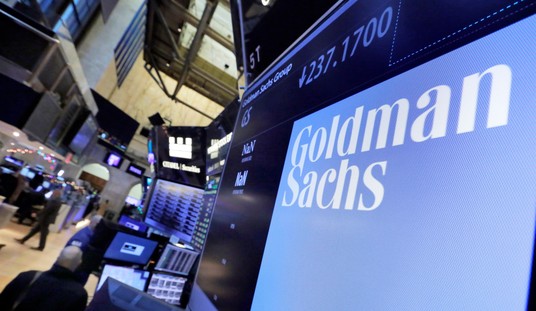How do you feel about burning the American flag? There’s a strange tension at work in this country about how we view the high reverence held by patriots when it comes to symbols of our nation, and the right to freely express. Based on conversations I've had throughout my life, I perceive that most who share my visceral reaction to seeing old glory in flames believe that the 1st Amendment should take priority in order that our rights to speech also remain guaranteed in times of belligerent rule. But in recent years, we observed that constitutional rights of expression take a back seat when the progressive zeitgeist comes up with its own religious markers, and rules to protect them from open critique.
President Trump recently signed an executive order that directs the Department of Justice to prioritize prosecuting the act of burning the American flag when it is done to incite riotous behavior, encourage violence, or as part of another crime. Do we want presidents unilaterally deciding what constitutes protected, versus unprotected, speech? No, we experienced enough of that under the Biden regime, which aggressively prosecuted and imprisoned those whose expression countered its aims. But that’s not the issue at hand. President Trump’s order is not about restricting speech, but discouraging unacceptable behavior in a nation of ordered liberty.
The White House acknowledges the Supreme Court’s 1989 Texas v. Johnson 5-4 ruling that protected flag burning as a means of protected expression. However, the executive order rightly notes that the court “never held that American Flag desecration conducted in a manner that is likely to incite imminent lawless action or that is an action amounting to ‘fighting words’ is constitutionally protected.”
READ MORE: Trump Executive Order: Burn the American Flag, Go to Jail
That aside, the issue to me is one of basic principle.
Merriam-Webster’s defines principle as “a comprehensive and fundamental law, doctrine, or assumption.” The words comprehensive and fundamental convey that the law, doctrine, or assumption must apply consistently, regardless of time, place, person(s) involved, or other contextual factors. A basic principle might state that it’s morally wrong for you to steal from me, and for me to steal from you. The rule applies equally. In contrast, it would be a violation of principle to say that you can steal from me, but I cannot steal from you. That kind of thinking constitutes a double standard. The application of double standards equates to hypocrisy.
Both those things are commonplace in all eras. We routinely note the ‘rules for thee, but not for me’ approach that elites, political progressives, and sometimes childhood siblings favor. Arguments that could keep me on the side of freedom for people to burn the American flag were rooted in principle. You can’t deny their right of protest, and they can’t deny yours. That libertarian framing sounded reasonable, despite the sickening image of that deliberately offensive act. But a new flag took center stage on the national stage of late, and flipped the script.
It started off as a flag of multiple colors, referred to as ‘pride’ around 30 years ago. That banner has since evolved into a monstrosity that mutates at rates that would make viruses jealous, were they sentient. You know the one. For years, we have been accosted by it every June, as all the major brands queered their colors to ensure we know whose side they’re on in the cultural war. Some now call it the ‘progress’ flag. For simplicity, I refer to it as the Baal flag, after the imagined deity to whom ancient civilizations in the region of Canaan sacrificed their children and made boisterous fools of themselves in pointless acts of worship. In those days, defacing symbols of manmade gods often drew mob calls for the perpetrator’s execution.
How similarly enlightened many are today in calling for anyone who damages a Baal flag, or leaves tire markings on painted variants in crosswalks…where cars are driven… to be punished by the civil magistrate. It gets worse. Many American citizens have faced the fury of state legal systems for expressing objections to the forced acceptance of LGBTQ+IA ideologies in the public square.
Adolfo Martinez was sentenced to 15 years in jail for ripping a pride flag off a heretical church and burning it in 2019. In Florida, Dylan Brewer was charged with felony criminal mischief for doing tire burnouts on a street pride mural in Delray Beach, and eventually accepted a plea deal reducing it to a misdemeanor. He received one year of probation and had to pay approximately $5,700 in restitution. Alexander Jerich served two years of probation for a similar “offense.”
Ruslan Turko was charged with first-degree malicious mischief for the same kind of expression in the state of Washington, where defacing public ‘pride’ symbols is a felony, but burning the American flag is not. There are other examples in which there has been a tremendous disparity between which symbols are given protection from behavior that activists traditionally frame as protected speech, and which are not.
READ MORE: City Council Gets Raked Over the Coals for Banning American Flags and the Constitution From Meetings
By principle, those who burn American flags and defile images that convey Christian faith should likewise defend the speech rights of Americans who express their displeasure with the destructive outcomes of transgender ideology. These include the life-long sterilization of children, permanent imposed physical disabilities on minors, forced lifetime chemical dependencies, the explosion of mental torment, and the epidemic of suicide for those captured by that movement.
The impacts of such a poisonous doctrine across wider society include moral injury for those pressured to validate things they know to be immoral, and a drumbeat of school shootings committed by young people taught that their deliverance from gender ideology suffering requires that blood be spilt. It turns out that practices of human sacrifice are not in humanity’s past after all. The people coercively forcing these ideologies down our throats are driven not by principle, but by religious fervor. They believe their symbols are sacred and aggressively come for those who disagree. It is not whether a worldview will be enforced, but which one will win.
The basic policy of the United States when it comes to the use of nuclear weapons is mutually assured destruction, MAD for short. The principle is that if a hostile nation employs nukes against us, we’ll do the same in return, a guarantee of equal rules. That policy has proven effective at keeping nuclear weapons out of warfare for 70 years now. This is where President Trump’s executive order on flag burning offers a hint of sanity in essentially saying that if the symbols prized by the left deserve state protection, then so do the symbols treasured by the right. All flags are protected, or none are.
The executive order is not an opening salvo, but a long-overdue response to unconstitutional precedents of our time that allowed protest against things good and noble, and criminalized protest against evil things.













Join the conversation as a VIP Member